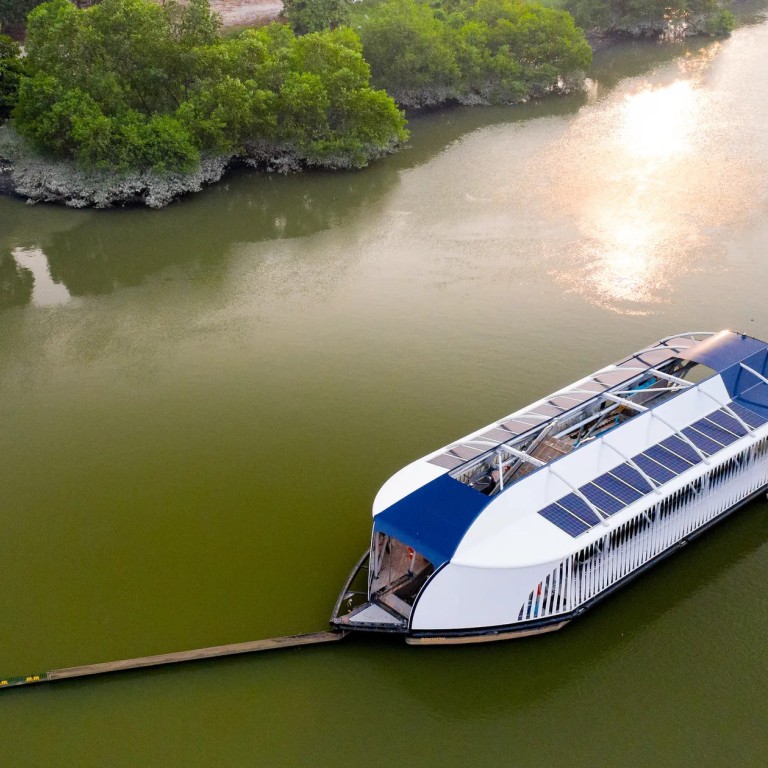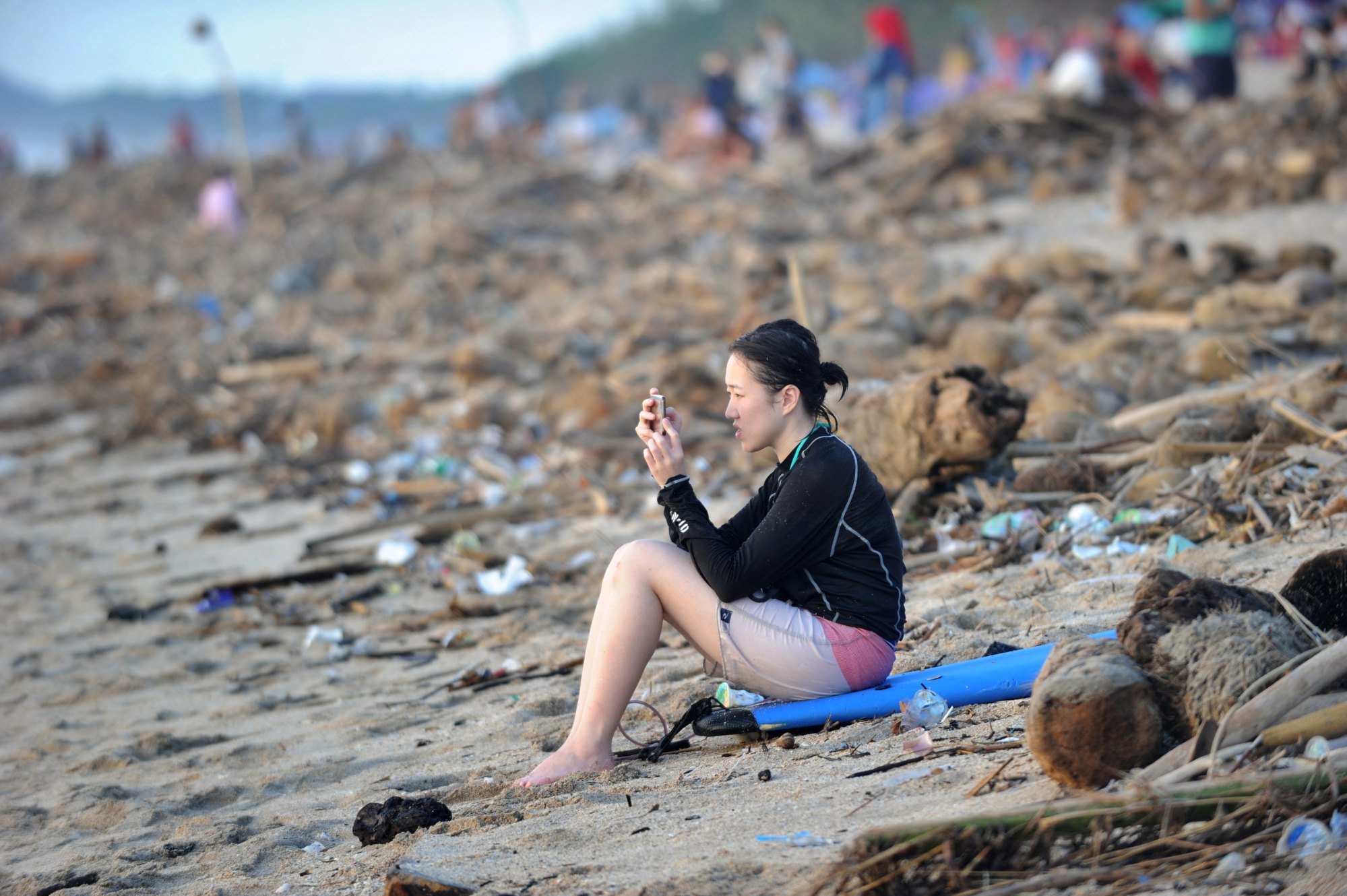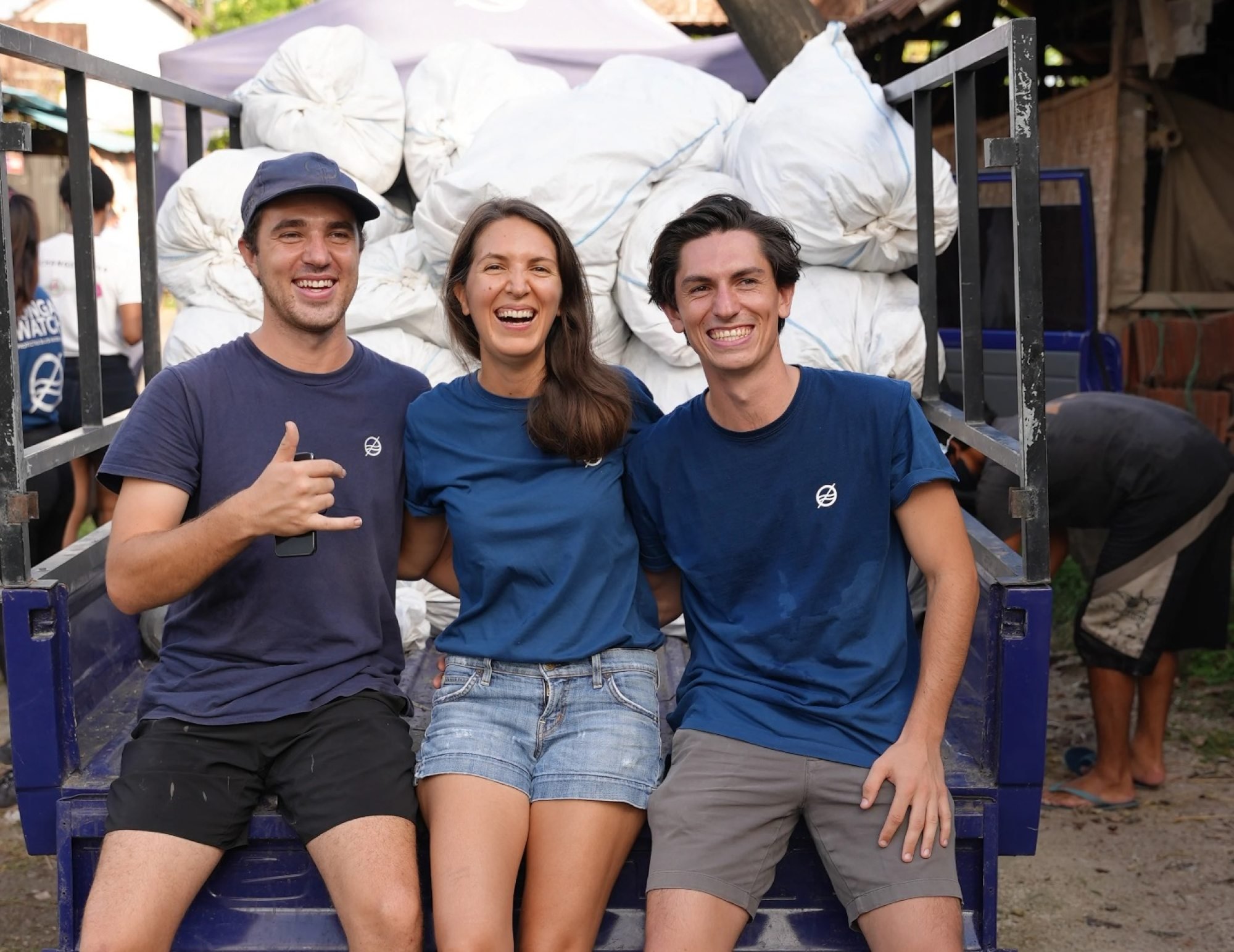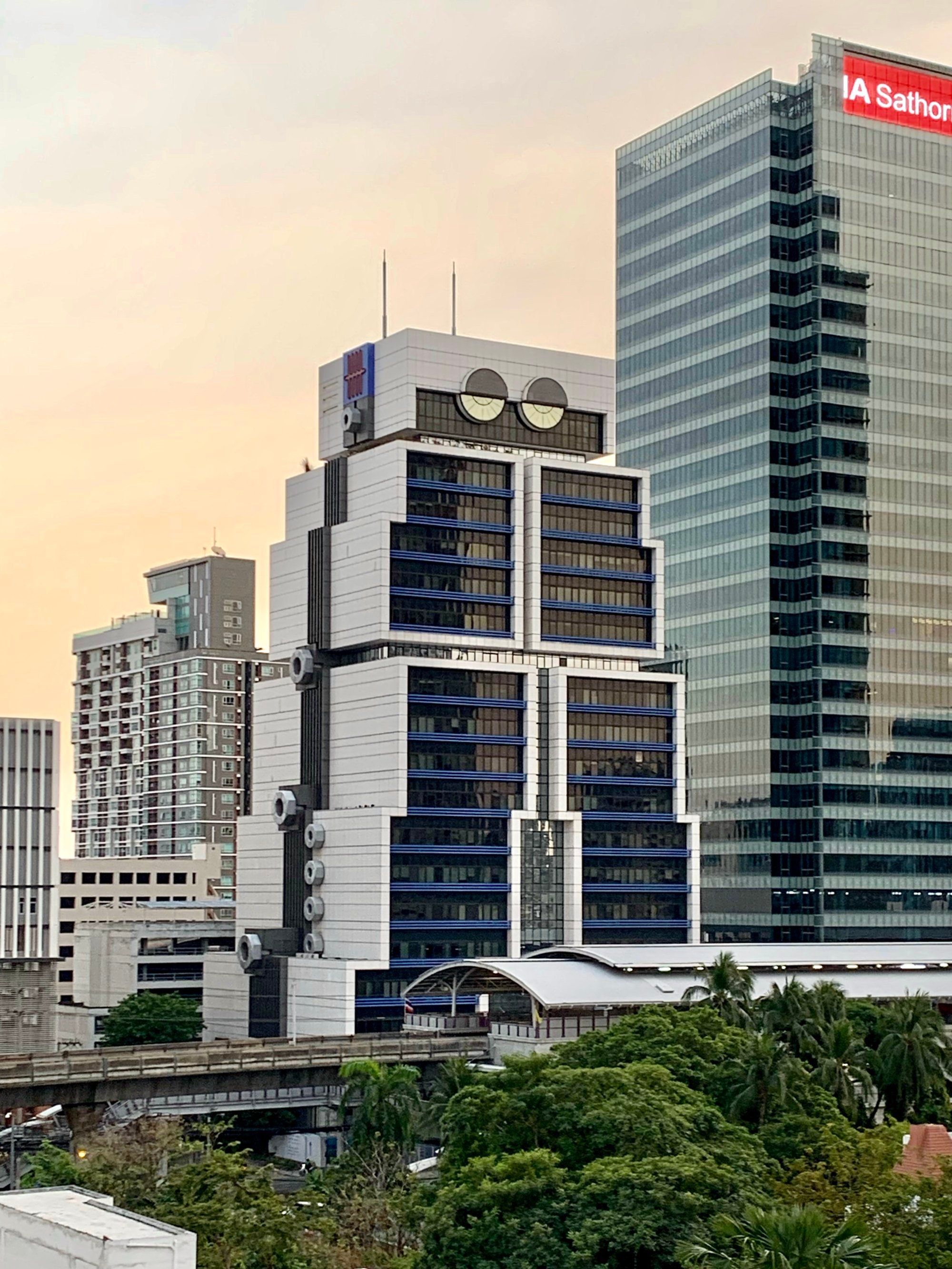
‘Tsunamis of trash’: the Bali-based ‘river warriors’ clearing Indonesia’s beaches and waterways of waste and helping villages end illegal dumping
- The volunteers of NGO Sungai Watch, founded by 3 Bali-raised siblings, have removed thousands of tonnes of waste from beaches and rivers there and in Java
- Meanwhile, Bangkok’s 20-storey Robot Building, inspired by a child’s robot toys, is undergoing renovation and could lose its distinctive features
Boyan Slat is something of a hero as far as Destinations Known is concerned.
The 29-year-old Dutch founder and CEO of The Ocean Cleanup – a non-profit organisation that develops technologies to rid oceans and waterways of plastic – has put his machines to work in Malaysia, Vietnam, Jamaica and the United States, as well as over the Great Pacific Garbage Patch, but the river clean-ups began in Indonesia, on April 1, 2019, when the company’s Interceptor 001 began sieving rubbish out of the Cengkareng Drain, in Jakarta.
Although its next deployment will again be in Indonesia – this year will see Interceptor 020 go to work in stopping up to 1,000 tonnes of rubbish flowing annually down the Cisadane River, to the west of Jakarta, and into the Java Sea – The Ocean Cleanup has yet to work its magic in or off Bali, where, reports Bloomberg, a smaller outfit is tackling an all-too-familiar problem.
“Over a six-week period this spring, the Indonesian non-governmental organisation Sungai Watch collected more than 40 tons, or 80,000 pounds, of trash from Jimbaran Bay – traditionally a bucket list paradise known for its grilled seafood restaurants, surf break and idyllic Four Seasons Resort.”

Perhaps the saddest part of the newswire’s article is that the size of the haul “surprised nobody on-site”.
“Tsunamis of trash like this have become a recurring issue: they wash over from neighbouring Java, the world’s most populous island, during monsoon season each year.”
When you have an entire coastline covered with plastic, it is a giant crisis
Not that many of the tourist hotspot’s problems aren’t of its own making. “Without a centralised waste collection or treatment system, the government estimates that 52 per cent of Bali’s garbage is mismanaged,” Bloomberg reports.
“Between some 1,000 illegal open dump sites polluting the island’s waters and litter piling up on the shores and roadsides, trash is the single biggest threat to the tourism economy.
“Bans on single-use plastics have largely failed, suffering in part from a lack of accountability. Moreover, in this deeply religious culture, ceremonial offerings have largely shifted from bamboo and banana leaf goods to foods wrapped in cellophane; they’re used during near-constant Hindu ceremonies.”
‘Very worrying’: Indonesia’s capital named world’s most polluted city
Gary Bencheghib, 28, is one of the three French-born, Bali-raised siblings who, in 2020, founded Sungai Watch (sungai means “river” in Bahasa Indonesia and Malay). “When you have an entire coastline covered with plastic, it is a giant crisis,” he says.
Rising to the challenge presented by this giant crisis in much the same way as Slat has, Gary, Kelly and Sam Bencheghib established Sungai Watch – sponsors of which include the World Surf League, Hilton Worldwide and Marriott Indonesia – with the intention of cleaning “every river in Indonesia”.

According to the Sungai Watch website: “We are on a mission to protect and restore Indonesia’s rivers by developing and designing simple technologies to stop the flow of plastic pollution from going into the ocean.”
Sungai Watch and the more than 85 “river warriors” it employs claim to have so far collected more than 1.3 million kg of plastic from the 180 river barriers they have installed and more than 650 community clean-ups they have arranged, for the time being only in Bali and southeast Java.
In an attempt to eradicate illegal rubbish dumps, Sungai Watch is providing villages with sorting stations as an alternative, but it’s a mammoth task.
Says Gary Bencheghib: “This is really just disaster relief for the next two, three years, going in and closing every open dump.”

Robot reboot
In May, Time Out Bangkok ran an article under the headline “Bangkok’s famous Robot Building is gone – and we didn’t even get the chance to say goodbye”.
The article was about the redevelopment of a 20-storey 1980s Sathorn Road building designed by Sumet Jumsai Na Ayudhya, an architect who drew inspiration from his son’s robot toys.
His building stood out for the steel nuts on its sides, circular windows that looked like half-open eyes and lightning and communication rods that resembled antennas.
The United Overseas Bank Thailand-owned building was being redeveloped and no one knew what to expect.
How Italian artists changed Bangkok – and Thailand’s art scene – forever
Now, only three months later, Britain’s Guardian newspaper is reporting that the tarpaulin has come off, “showing how the facade has been altered”. And there’s talk of an all-glazed exterior.
However, the article also says, “The renovation will be concluded in 2025, according to UOB. It did not respond when asked if the key components of the robot would be preserved, but pointed out that the government had not classified the building as a heritage building.”
So will Bangkok’s much-loved Robot Building still resemble a metal man or will it become another faceless tower?
That would be a shame. “Sometimes, I just don’t understand human behaviour,” the Robot Building might say, quoting fellow automaton C-3PO. “After all, I’m only trying to do my job.”

Asia art trail
Bill Bensley hasn’t designed a building that looks like a robot – at least, not to our knowledge – but he has been behind some of Asia’s most imaginative hotels.
Now the architect, artist, and interior and landscape designer has launched the Bensley Art Trail, in collaboration with travel company Smiling Albino.
These educational adventures – the first of which runs from November 28 to December 10 – are aimed at art enthusiasts and conservation advocates, and are an exploration of Bensley-designed hotels in Thailand, Cambodia and Laos.
Healing? Surfing? No – this Bali retreat is for home design
Bensley will instruct guests in hospitality architecture, interior design and landscaping, while introducing them to his favourite artists.
Best of all, the tour will raise funds to cover 32 full scholarships for the Shinta Mani Foundation Hospitality School.

